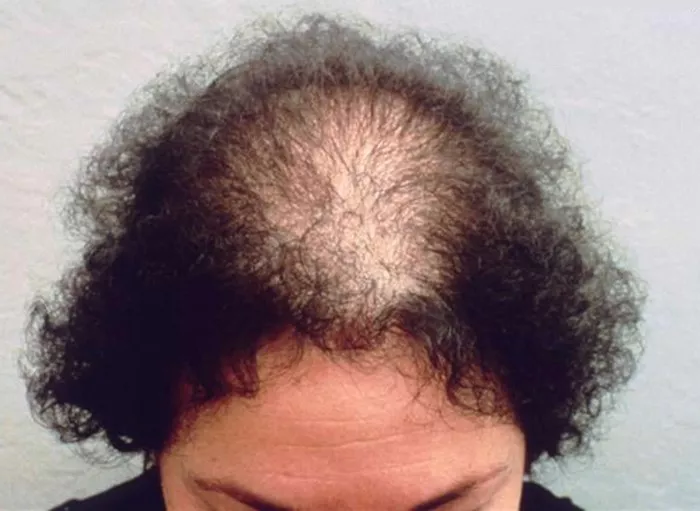Hair loss can be a distressing experience, impacting our self-esteem and overall well-being. While various factors contribute to hair loss, it’s essential to consider the products we use on our hair, including shampoos. The wrong choice of shampoo ingredients can potentially exacerbate hair loss concerns. In this article, we’ll delve into the factors commonly found in shampoos that might contribute to hair loss, empowering you to make informed decisions about your hair care routine.
Shampoo ingredients that cause hair loss
The following are shampoo ingredients that cause hair loss:
1. Harsh Chemicals and Sulfates:
Some shampoos contain harsh chemicals and sulfates that can strip the hair of its natural oils and disrupt the scalp’s balance. This can lead to dryness, irritation, and inflammation of the scalp, creating an unfavorable environment for healthy hair growth. Over time, this stress on the scalp can contribute to hair weakening and potential hair loss.
2. Parabens and Preservatives:
Parabens are synthetic preservatives commonly used in cosmetic products, including shampoos. Research suggests that excessive exposure to parabens may disrupt hormonal balance, which could potentially impact hair growth cycles. While the exact connection between parabens and hair loss is still being studied, opting for paraben-free shampoos can be a cautious choice.
3. Fragrances and Allergens:
Fragrances in shampoos often contain a mix of chemicals, some of which can be allergenic or irritating to the scalp. Allergic reactions or scalp sensitivity can lead to inflammation, itching, and potential hair loss due to constant scratching or irritation-induced hair breakage.
Can over-cleansing cause hair loss?
Over-cleansing can lead to hair loss. Frequent washing with harsh shampoos strips the scalp of natural oils, causing dryness and weakening hair strands. This can result in brittle hair prone to breakage and thinning. Over-cleansing can disrupt the hair’s natural growth cycle, leading to hair loss due to the stress placed on hair follicles. It’s crucial to strike a balance between cleanliness and maintaining the scalp’s natural oils to prevent excessive hair loss caused by over-cleansing.
How to solve hair loss caused by shampoo?
To address hair loss caused by shampoo, follow these steps:
1. Switch to Mild Shampoo:
Choose a sulfate-free and gentle shampoo that doesn’t strip natural oils from the scalp. Look for products with natural ingredients and no harsh chemicals.
2. Reduce Frequency:
Wash hair every 2-3 days rather than daily to prevent over-cleansing and scalp dryness.
3. Massage Gently:
Avoid vigorous scrubbing while washing. Use your fingertips to massage the scalp gently and improve circulation.
4. Use Lukewarm Water:
Hot water can further dry out the scalp. Opt for lukewarm water to wash your hair.
5. Avoid Heat Styling:
Give your hair a break from heat tools, which can worsen hair loss. If styling is necessary, use heat protectants.
Can a healthy diet help reduce hair loss?
A healthy diet plays a crucial role in reducing hair loss. Nutrient-rich foods provide essential vitamins, minerals, and proteins that support hair health. Biotin, found in eggs and nuts, strengthens hair structure. Omega-3 fatty acids from fatty fish promote scalp health and reduce inflammation. Iron from lean meats and leafy greens prevents hair shedding. Zinc in seeds and whole grains supports hair growth. Adequate protein intake is vital for strong hair strands. Vitamins like A, C, and E contribute to overall scalp health. A balanced diet nourishes hair follicles, promoting growth and minimizing hair loss.
See Also: How to Stop Hair Loss from Birth Control: A Quick Guide
Conclusion:
In your quest for maintaining healthy hair, it’s crucial to pay attention to the ingredients in the products you use, including shampoos. While certain shampoo ingredients might potentially contribute to hair loss, making informed choices can significantly reduce the risk. Opt for shampoos that prioritize scalp health, contain nourishing ingredients, and are free from harmful chemicals. Remember that individual responses to products can vary, so pay attention to how your scalp and hair react to different shampoos. By selecting shampoos that align with your hair’s unique needs, you can contribute to a vibrant, healthy scalp and minimize the risk of hair loss concerns.


